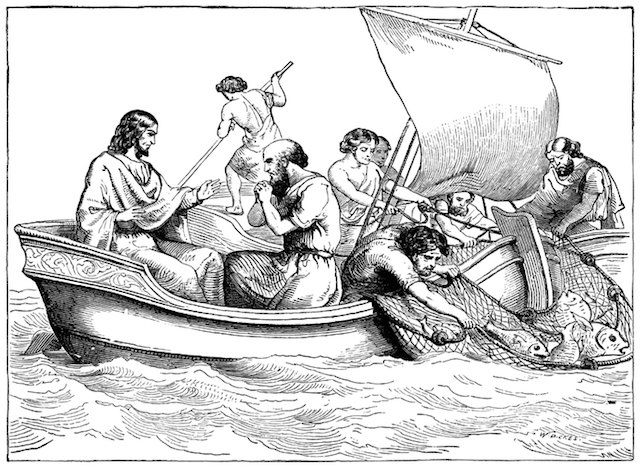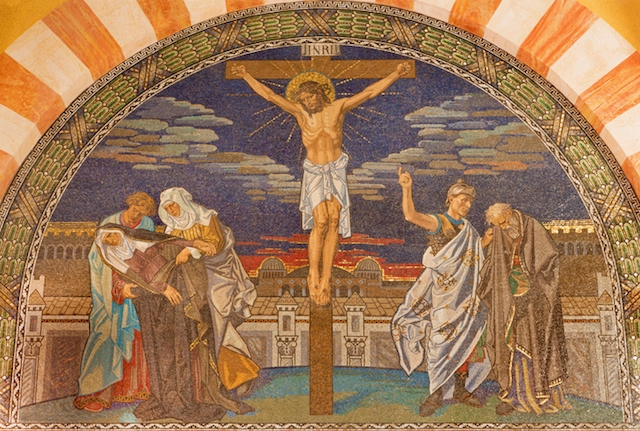This is the companion piece to my post on Anti-Semitism.
https://youtu.be/KvOg3teOiZA
https://www.myjewishlearning.com/article/what-do-jews-believe-about-jesus/
How Judaism regards the man Christians revere as the messiah.
esus is the central figure of Christianity, believed by Christians to be the messiah, the son of God and the second person in the Trinity.
But what do Jews believe about Jesus?
- For some Jews, the name alone is nearly synonymous with pogroms and Crusades, charges of deicide and centuries of Christian anti-Semitism.
- Other Jews, recently, have come to regard him as a Jewish teacher. This does not mean, however, that they believe, as Christians do, that he was raised from the dead or was the messiah.
While many people now regard Jesus as the founder of Christianity, it is important to note that he did not intend to establish a new religion, at least according to the earliest sources, and he never used the term “Christian.” He was born and lived as a Jew, and his earliest followers were Jews as well. Christianity emerged as a separate religion only in the centuries after Jesus’ death.
Who Was Jesus?
Virtually all of what is known about the historical Jesus comes from the four New Testament Gospels — Matthew, Mark, Luke and John — which scholars believe were written several decades after Jesus’ death.
While there is no archaeological or other physical evidence for his existence, most scholars agree that Jesus did exist and that he was born sometime in the decade before the Common Era and crucified sometime between 26-36 CE (the years when the Roman governor, Pontius Pilate, ruled Judea).
He lived at a time when the Roman Empire ruled what is now Israel and sectarianism was rife, with major tensions among Jews not only over how much to cooperate with the Romans but also how to interpret . It was also, for some, a restive time when displeasure with Roman policies, as well as with the Temple high priests, bred hopes for a messianic redeemer who would throw off the foreign occupiers and restore Jewish sovereignty in the Land of Israel.

Was Jesus the Messiah?
The question “was Jesus the messiah?” requires a prior question: “What is the definition of messiah?” The Prophets (Nevi’im), who wrote hundreds of years before Jesus’ birth, envisioned a messianic age as as a period of universal peace, in which war and hunger are eradicated, and humanity accepts God’s sovereignty. By the first century, the view developed that the messianic age would witness a general resurrection of the dead, the in-gathering of all the Jews, including the 10 lost tribes, to the land of Israel, a final judgment and universal peace.
Some Jews expected the messiah to be a descendant of King David (based on an interpretation of God’s promise to David in 2 Samuel 7 of an eternal kingdom). The Dead Sea Scrolls speak of two messiahs: one a military leader and the other a priest. Still other Jews expected the prophet Elijah, or the angel Michael, or Enoch, or any number of other figures to usher in the messianic age.
Stories in the Gospels about Jesus healing the sick, raising the dead, and proclaiming the imminence of the kingdom of heaven suggest that his followers regarded him as appointed by God to bring about the messianic age.
More than 1,000 years after Jesus’ crucifixion, the medieval sage Maimonides (also known as Rambam) laid out in his Mishneh Torah specific things Jews believe the messiah must accomplish in order to confirm his identity — among them restoring the kingdom of David to its former glory, achieving victory in battle against Israel’s enemies, rebuilding the temple (which the Romans destroyed in 70 CE) and ingathering the exiles to the land of Israel. “And if he’s not successful with this, or if he is killed, it’s known that he is not the one that was promised by the Torah,” Maimonides wrote.
What About Jews for Jesus?
Jews for Jesus is one branch of a wider movement called Messianic Jews. Members of this movement are not accepted as Jewish by the broader Jewish community, even though some adherents may have been born Jewish and their ritual life includes Jewish practices. While an individual Jew could accept Jesus as the messiah and technically remain Jewish — rejection of any core Jewish belief or practice does not negate one’s Jewishness — the beliefs of messianic Jews are theologically incompatible with Judaism.
Did the Jews Kill Jesus?
No. Jesus was executed by the Romans. Crucifixion was a Roman form of execution, not a Jewish one.
For most of Christian history, Jews were held responsible for the death of Jesus. This is because the New Testament tends to place the blame specifically on the Temple leadership and more generally on Jewish people. According to the Gospels, the Roman governor Pontius Pilate was reluctant to execute Jesus but was egged on by bloodthirsty Jews — a scene famously captured in Mel Gibson’s controversial 2004 film “The Passion of the Christ.” According to the Gospel of Matthew, after Pilate washes his hands and declares himself innocent of Jesus’ death, “all the people” (i.e., all the Jews in Jerusalem) respond, “His blood be on us and on our children” (Matthew 27:25).
This “blood cry” and other verses were used to justify centuries of Christian prejudice against Jews. In 1965, the Vatican promulgated a document called “Nostra Aetate” (Latin for “In Our Time”) which stated that Jews in general should not be held responsible for the death of Jesus. This text paved the way for a historic rapprochement between Jews and Catholics. Several Protestant denominations across the globe subsequently adopted similar statements.

Why Was Jesus Killed?
Some have suggested that Jesus was a political rebel who sought the restoration of Jewish sovereignty and was executed by the Romans for sedition — an argument put forth in two recent works: Reza Aslan’s Zealot and Shmuley Boteach’s Kosher Jesus. However, this thesis is not widely accepted by New Testament scholars. Had Rome regarded Jesus as the leader of a band of revolutionaries, it would have rounded up his followers as well. Nor is there any evidence in the New Testament to suggest that Jesus and his followers were zealots interested in an armed rebellion against Rome. More likely is the hypothesis that Romans viewed Jesus as a threat to the peace and killed him because he was gaining adherents who saw him as a messianic figure.
Did Jesus Reject Judaism?
Some have interpreted certain verses in the Gospels as rejections of Jewish belief and practice. In the Gospel of Mark, for example, Jesus is said to have declared forbidden foods “clean” — a verse commonly understood as a rejection of kosher dietary laws — but this is Mark’s extrapolation and not necessarily Jesus’ intention. Jesus and his earliest Jewish followers continued to follow Jewish law.
The New Testament also include numerous verses testifying to Jesus as equal to God and as divine — a belief hard to reconcile with Judaism’s insistence on God’s oneness. However, some Jews at the time found the idea that the divine could take on human form compatible with their tradition. Others might have regarded Jesus as an angel, such as the “Angel of the Lord” who appears in Genesis 16, Genesis 22, Exodus 3 (in the burning bush) and elsewhere.
Are There Jewish Texts that Reference Jesus?
Yes. The first-century Jewish historian Josephus mentions Jesus, although the major reference in his Antiquities of the Jews appears to have been edited and augmented by Christian scribes. There are a few references in the Talmud to “Yeshu,” which many authorities understand as referring to Jesus.
The tractate Sanhedrin originally recorded that Yeshu the Nazarene was hung on the eve of Passover for the crime of leading Jews astray. This reference was excised from later versions of the Talmud, most likely because of its use by Christians as a pretext for persecution.
In the medieval period, a work called Toledot Yeshu presented an alternative history of Jesus that rejects cardinal Christian beliefs. The work, which is not part of the canon of rabbinic literature, is not widely known.
Maimonides, in his Mishneh Torah, describes Jesus as the failed messiah foreseen by the prophet Daniel. Rather than redeeming Israel, Maimonides writes, Jesus caused Jews to be killed and exiled, changed the Torah and led the world to worship a false God.
